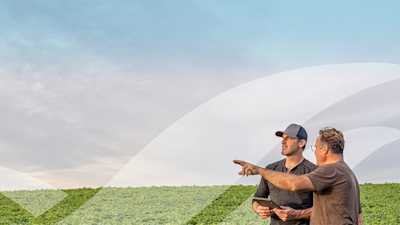Finding fairness with land value when transitioning the farm

When transition planning, determining what’s fair to off-farm kids requires creative thinking and open discussion. And it’s becoming more complicated as rising land prices make inheritance issues even bigger.
Annessa Good-Hassard, a Transition Advisor, says it’s never too early for a family to discuss how the farm will pass from one generation to the next. Talking early — before a transition plan begins — is a solid farm risk mitigation strategy. She points out that going about the plan is tough enough with so much family history at stake – even worse if a parent dies and emotions escalate even further.
Getting it done promptly is vital. But how?
3 big questions to ask yourself

In this brief video, Good-Hassard suggests transition discussions start with three big questions. Answering them is also valuable for when you’re ready to talk to your transition advisor.
Will land go to a non-farming child?
If yes, there are concepts to work with that. This practice is becoming a trend as Canadian land values increase.Is the operating company being left to a farming child?
Whether the farm company is left with the farming child or off-farm child could impact the family dynamic. In some cases, the farming child may end up reporting farm decisions to an off-farm sibling. To create balance in inheritance, there are several risks to be considered with a transition adviser.Where is the land wealth?
If land wealth is in the farm company, it may be complicated for non-farming children to access it. This is another important question to raise with transition experts early in the process.
Fair and equal transition
Determining an equitable split between on-and off-farm siblings adds to the complication.
“As a parent, how can I sleep at night knowing I’m leaving a certain amount of money to the farming child and certain investments to my off-farm children?” she says.
A farm’s value is often in its land, and on-farm children who get that land as part of the succession plan immediately have a huge asset.
“As a parent, how can I sleep at night knowing I’m leaving a certain amount of money to the farming child and certain investments to my off-farm children?”
But that asset only turns to cash if they sell the farm, and that’s rarely in the cards.
“It’s like Monopoly money – it’s not real,” Good-Hassard says. “If the on-farm sibling doesn’t sell, they’ll never see that value.”
However, these asset-rich, cash-poor, on-farm siblings are often expected to compensate their off-farm counterparts somehow. Agreeing to buy them out can add a lot of pressure. Even a modest repayment schedule can be difficult for the new operator.
Perhaps off-farm siblings can become shareholders. That can be difficult if the on-farm siblings think they must answer to off-farm siblings for management and production decisions.
Overall, the issue is far from simple, Good-Hassard says.
Bottom line
When transferring land, creating fairness among on-and off-farm children can be tough. But approaching the subject early and honestly and asking the right questions can keep the peace and make the transition process smoother.
Article by: Owen Roberts

Fictional case studies created by BDO Canada and MNP illustrating real-world farm transition scenarios.

